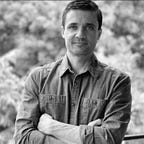Get the Picture: Life Cycle Assessment Captures Company’s Sustainability
Canadian ‘Snacktivist’ Works With Suppliers to Reduce Impact
A Montreal-based “snacktivist” Certified B Corporation, PRANA was founded in 2005 by an adventurous couple who wanted to have a positive impact on the global food system. Today, PRANA is en route to becoming an employee-owned enterprise with over 70 staff, offering 100% organic and plant-based snacks across Canada while collaborating with more than 30 organic suppliers in over 15 countries worldwide.
But the snacktivists know well that their reach should not stop at their doorstep. Pursuing a desire to go further by understanding and taking ownership of the full impacts of its operations, PRANA hired B Corp Ellio Consulting to complete a full life cycle assessment of its “foodprint.”
PRANA Biovegan is Best For The World: Environment, which is evaluated based on a company’s environmental performance through its facilities, materials, emissions, resource and energy use, environmental impact of supply chains, and whether a company’s product provides an environmental benefit, and more. Find all Best For The World honorees and stories.
Tiffanie Murillo, PRANA’s social and environmental sustainability manager, explains some of the ins and outs of a life cycle assessment—and what the company has learned so far from the process.
What motivated PRANA to use a life cycle assessment (LCA)?
It’s not common to dig deep in regarding the impacts of the food industry. However, as a B Corp we are committed to changing the food system and bringing solutions to environmental crises. So we’ve wanted to go beyond little things that are good for marketing, in this case by knowing what the real impact of our operations was.
But before we could reduce our impact, it was important to understand it. Only then would we be confident that we were applying pertinent solutions to the climate problems to create a meaningful action plan in line with our values. So that’s where Ellio’s LCA came in.
Were there any internal problems that you wanted to resolve through the LCA?
At first, our largest problem was not knowing where to prioritize our sustainability efforts and our focus. For example, we use stand-up, flexible plastic bags to sell our foods—mostly because they help to guarantee their freshness for a longer time. However, a common perception among our customers is that packaging is our greatest problem (when, in fact, it’s not). The LCA revealed that packaging only accounted for 5% of our environmental impact, whereas the agricultural practices of our suppliers were responsible for around 80%.
In this way, the study has shown us that we need to better inform our customers about our hot spots and, most importantly, communicate what we’re doing to address them. The LCA has allowed PRANA to set relevant priorities for an action plan that is credible but also relevant to everyone’s overall long-term success.
What were the main outcomes of the LCA?
For one, the LCA allowed us to reconnect and get closer to our suppliers. This was important to elevate relationships and ask questions that are pertinent for the long-term. Reconnecting also allowed us to show them that we care while challenging suppliers to be a “motor of change” and do better things.
For another, the LCA made clear what our impacts are. For example, we realized that irrigation was likely the largest source of impact in almond production. Quantifying these impacts now allows us to make a clear case for where and why we should change, making it easier to invite our stakeholders along the way. In doing so, we have decided to be fully transparent—not only as a way to gain credibility but also to empower our clients, employees, and suppliers to address what is really going on.
What sort of realizations or decisions have been taken following the LCA?
The LCA revealed that we want to put our focus on sustainable farming “beyond organic.” We have become convinced that, although it’s a good starting point, “organic” does not always mean “sustainable.” So we are now prepared to develop much closer collaboration with our suppliers.
For that purpose, we have developed a holistic program to evaluate potential suppliers, as well as a code of conduct. That will help us reduce risks while also developing commercial relationships that guarantee greater long-term success.
Find all Best For The World honorees and stories on B the Change.
B the Change gathers and shares the voices from within the movement of people using business as a force for good and the community of Certified B Corporations. The opinions expressed do not necessarily reflect those of the nonprofit B Lab.
